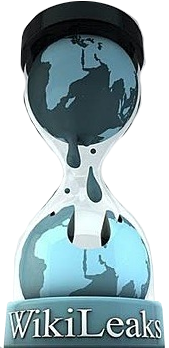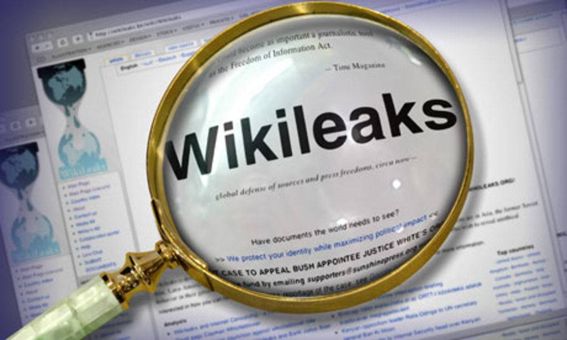 |
 |
Freedom of speech is in the eye of the beholder |
| Julian Assange founded the controversial WikiLeaks website in 2006 and serves on its advisory board. In this capacity, he has received widespread public attention for his role in the release of classified material documenting the involvement of the United States in the wars in Afghanistan and Iraq. On 28 November 2010, WikiLeaks and its five media partners began publishing the United States diplomatic cables leak. |
 |
WikiLeaks.com is now one of the most consistently reported on websites in the world, and Julian Assange, the public face of the organization, has become famous around the globe. Assange: Our goal is to bring important news and information to the public. We provide an innovative, secure and anonymous way for sources to leak information to our journalists (our electronic drop box). One of our most important activities is to publish original source material alongside our news stories so readers and historians alike can see evidence of the truth. We are a young organization that has grown very quickly, relying on a network of dedicated volunteers around the globe. Since 2007, when the organization was officially launched, WikiLeaks has worked to report on and publish important information. We also develop and adapt technologies to support these activities. WikiLeaks has sustained and triumphed against legal and political attacks designed to silence our publishing organization, our journalists and our anonymous sources. The broader principles on which our work is based are the defense of freedom of speech and media publishing, the improvement of our common historical record and the support of the rights of all people to create new history. We derive these principles from the Universal Declaration of Human Rights. In particular, Article 19 inspires the work of our journalists and other volunteers. It states that everyone has the right to freedom of opinion and expression; this right includes freedom to hold opinions without interference and to seek, receive and impart information and ideas through any media and regardless of frontiers. We agree, and we seek to uphold this and the other Articles of the Declaration. |
| WikiLeaks has combined high-end security technologies with journalism and ethical principles. Like other media outlets conducting investigative journalism, we accept (but do not solicit) anonymous sources of information. Unlike other outlets, we provide a high security anonymous drop box fortified by cutting-edge cryptographic information technologies. This provides maximum protection to our sources. We are fearless in our efforts to get the unvarnished truth out to the public. When information comes in, our journalists analyze the material, verify it and write a news piece about it describing its significance to society. We then publish both the news story and the original material in order to enable readers to analyses the story in the context of the original source material themselves. As the media organization has grown and developed, WikiLeaks been developing and improving a harm minimization procedure. We do not censor our news, but from time to time we may remove or significantly delay the publication of some identifying details from original documents to protect life and limb of innocent people. We accept leaked material in person and via postal drops as alternative methods, although we recommend the anonymous electronic drop box as the preferred method of submitting any material. We do not ask for material, but we make sure that if material is going to be submitted it is done securely and that the source is well protected. Because we receive so much information, and we have limited resources, it may take time to review a source’s submission. |
| WikiLeaks is a project of the Sunshine Press. It’s probably pretty clear by now that WikiLeaks is not a front for any intelligence agency or government despite a rumor to that effect. This rumor was started early in WikiLeaks’ existence, possibly by the intelligence agencies themselves. WikiLeaks is an independent global group of people with a long standing dedication to the idea of a free press and the improved transparency in society that comes from this. The group includes accredited journalists, software programmers, network engineers, mathematicians and others. To determine the truth of our statements on this, simply look at the evidence. By definition, intelligence agencies want to hoard information. By contrast, WikiLeaks has shown that it wants to do just the opposite. Our track record shows we go to great lengths to bring the truth to the world without fear or favor. The American president Thomas Jefferson once observed that the price of freedom is eternal vigilance. We believe the journalistic media plays a key role in this vigilance. |
 |
| Assange was the winner of the 2009 Amnesty International Media Award (New Media), awarded for exposing extra judicial assassinations in Kenya with the investigation The Cry of Blood – Extra Judicial Killings and Disappearances. In accepting the award, he said: “It is a reflection of the courage and strength of Kenyan civil society that this injustice was documented. Through the tremendous work of organizations such as the Oscar foundation, the KNHCR, Mars Group Kenya and others we had the primary support we needed to expose these murders to the world.” He also won the 2008 Economist Index on Censorship Award. Assange was awarded the 2010 Sam Adams Award by the Sam Adams Associates for Integrity in Intelligence.In September 2010, Assange was voted as number 23 among the “The World’s 50 Most Influential Figures 2010” by the British magazine New Statesman. In their November/December issue, Utne Reader magazine named Assange as one of the “25 Visionaries Who Are Changing Your World“. On 12 November 2011 he was leading in the poll for Time magazine’s “Person of the Year, 2010“. |